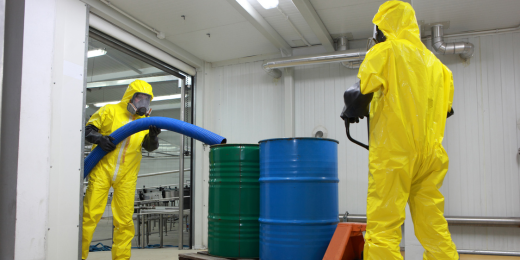Indicators on Reclaim Waste You Need To Know
Table of ContentsAn Unbiased View of Reclaim WasteReclaim Waste Things To Know Before You Get ThisSome Known Facts About Reclaim Waste.The smart Trick of Reclaim Waste That Nobody is Talking About9 Simple Techniques For Reclaim Waste
Discover the kinds, incidents, and forms of fluid waste. Residential sewage waste describes the waste and items from a household septic system. This type of waste is developed by humans in residences, colleges, and other buildings. This only includes septic systems that have a drainpipe field. The proper monitoring and disposal of residential sewer waste need liquid waste to be moved to a sewage treatment plant where the correct approaches and devices are related to detoxify and throw away waste.
Business waste often consists of potential threats, such as flammable products or a mix of fluid and solid waste products, and calls for a much more advanced and comprehensive disposal process. The disposal of business waste usually involves the purification of waste before transport to guarantee safe and correct disposal. Industrial waste is created from results and runoff of commercial processes and manufacturing.
This type of waste can not use the very same sewer administration transportation or processes as septic or commercial fluids. The hazardous waste monitoring procedure requires the assessment and screening of fluid waste before it undergoes the disposal process (liquid waste removal). Drainage waste is the fluid waste that originates from runoff and excess stormwater in highly populated locations or cities
Runoff waste can trigger contamination and flooding if not taken care of correctly. Discover more concerning sewage system cleansing and waste management. Guaranteeing appropriate waste administration can stop catastrophes and minimize environmental injury. Both individuals in property setups and experts in business or production markets can take advantage of comprehending the processes and policies of liquid waste management.
Unknown Facts About Reclaim Waste
Get in touch with PROS Providers today to find out regarding our waste administration and disposal solutions and the appropriate means to look after the liquid waste you generate.
(https://www.pageorama.com/?p=reclaimwaste1)Do you understand what takes place to your water when you end, flush the toilet or drain pipes the washing maker? No? Well, it's worth recognizing. This so-called 'wastewater' is not only a crucial resource but, after therapy, will be launched to our land, waterways or the ocean. Made use of water from bathrooms, showers, baths, kitchen area sinks, washings and commercial procedures is called wastewater.

water used to cool down equipment or tidy plant and equipment). Stormwater, a form of wastewater, is overflow that moves from farming and city areas such as roofing systems, parks, yards, roads, courses and seamless gutters right into stormwater drains, after rainfall. Stormwater flows neglected directly to regional creeks or rivers, eventually getting to the sea.
Reclaim Waste - Truths
In Queensland, many wastewater is dealt with at sewage therapy plants. Wastewater is moved from residential or commercial websites with a system of sewage systems and pump terminals, recognized as sewage reticulation, to a sewage treatment plant.
The Department of Natural Resources encourages city governments about handling, operating and keeping sewerage systems and therapy plants. In unsewered locations, city governments may call for householders to mount specific or house sewer therapy systems to treat domestic wastewater from commodes, kitchens, restrooms and laundries. The Division of Natural Resources authorizes using house systems when they are shown to be effective.
Most stormwater receives no therapy. In some brand-new neighborhoods, treatment of some stormwater to eliminate trash, sand and gravel has actually started utilizing gross pollutant traps. Wastewater treatment occurs in 4 phases: Eliminates solid issue. Larger solids, such as plastics and other objects mistakenly released to drains, are gotten rid of when wastewater is gone through screens.
Wastewater after that streams into big storage tanks where solids resolve and are removed as sludge. Grease and residue are skimmed from the surface. Uses little living microorganisms called micro-organisms to break down and remove staying liquified wastes and great bits. Micro-organisms and wastes are incorporated in the sludge. Eliminates nitrogen and phosphorus nutrients that could cause algal flowers in our rivers and endanger water life.
How Reclaim Waste can Save You Time, Stress, and Money.
Nutrient removal is not offered in all sewer therapy plants due to the fact that it calls for pricey specialized tools. It is becoming a lot more typical in Queensland. Clear fluid effluent created after therapy might still consist of disease-causing micro-organisms. If this effluent is launched into rivers such as rivers or the sea, the micro-organisms will eventually die out.

Many wastewater flows into the sewage system. Under the website link Act, neighborhood governments administer approvals and licences for ecologically appropriate tasks (ERAs) involving wastewater launches that could have a regional influence.
Facts About Reclaim Waste Uncovered
Tracking supplies valid details about water high quality and can confirm that permit problems are being met. The info obtained through surveillance supplies the basis for making water top quality decisions.